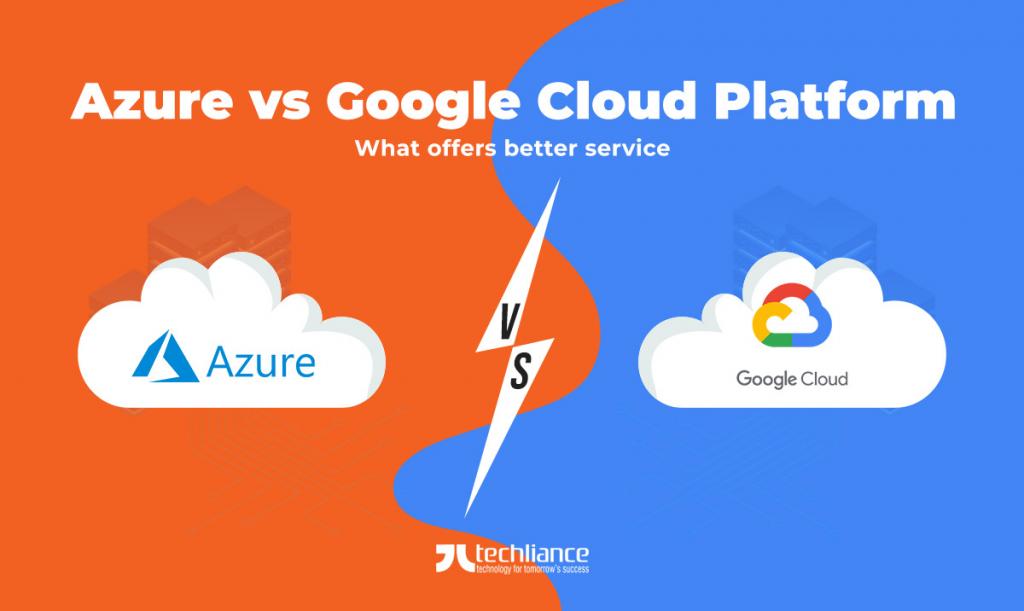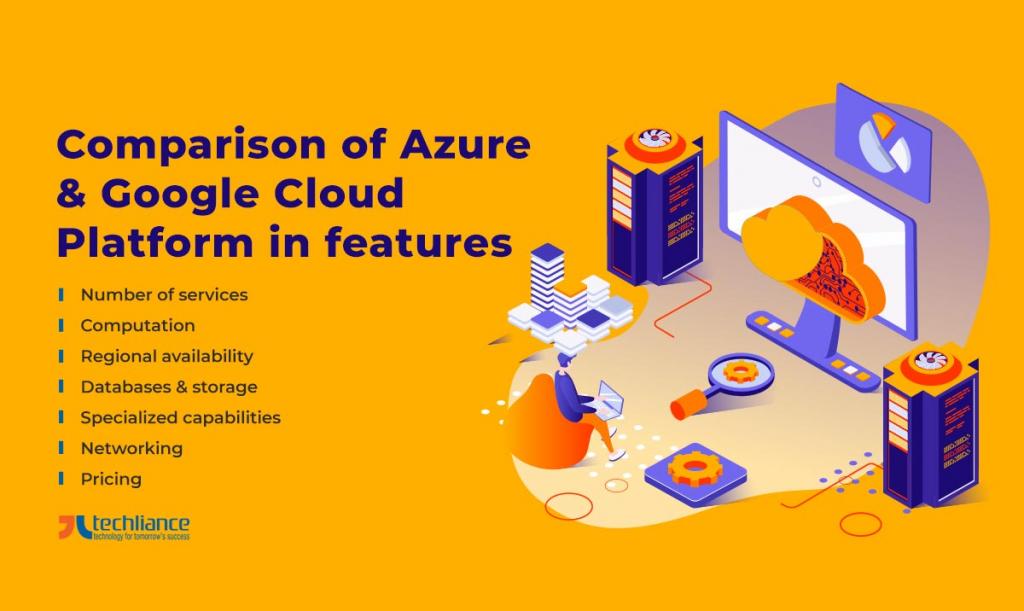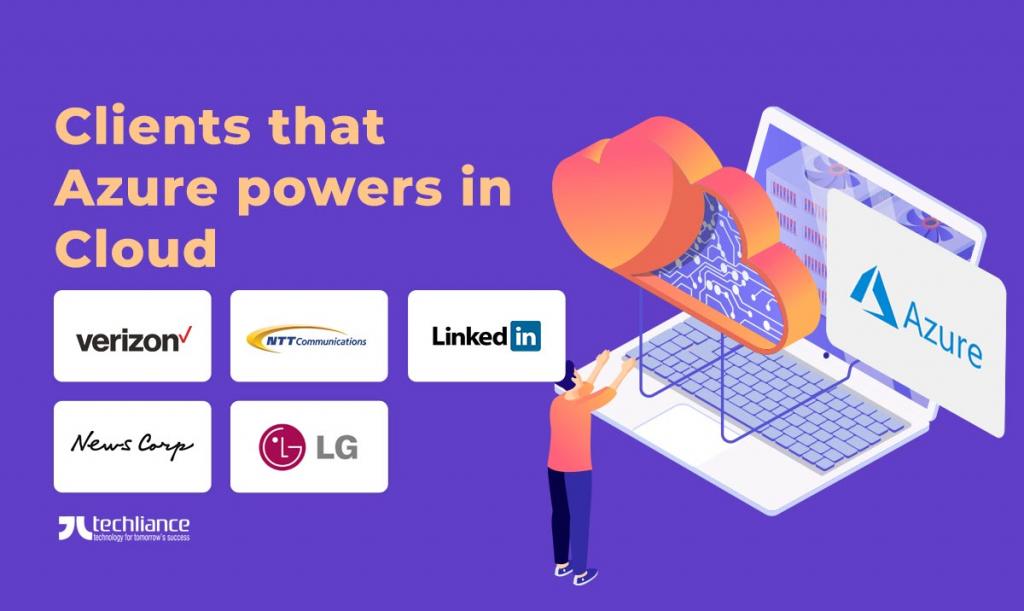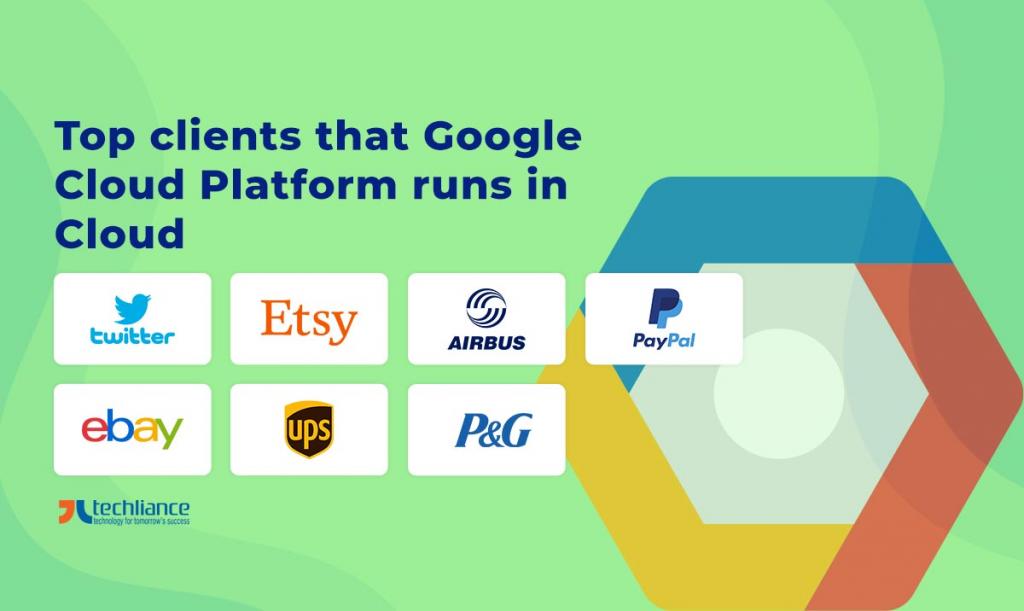We are at the advent of something truly spectacular in 2024. Cloud computing plays a huge role in the way we are connected to data. In case of not opting for AWS, do an Azure vs Google Cloud Platform assessment for selecting cloud services.
With constant innovation thanks to the convergence of so many technologies, things will never be the same. Because the types of social interactions have changed tremendously. Accordingly, the cross-collaboration for creating products, and services have become the major way of doing things.
In a nutshell, the cloud is becoming the backbone of the Internet. However, cloud computing is providing instant connectivity, information, and collaboration between people, products, and services. AWS as the pioneering platform for the cloud presents limitless possibilities.
However, other leading tech giants Microsoft and Google did not stay behind in this race. They introduced their respective cloud platforms in the form of Azure and Google Cloud Platform (GCP). Let’s take a look at these cloud services for IT support in further detail.
You will understand that both of these cloud platforms are at par level with each other. Anyways, we need to find the better choice from the Azure vs Google Cloud Platform comparison. Subsequently, the winner from this showdown takes on AWS as the contender in the big cloud platform race.

A first look at Microsoft Azure
Debuting in 2010, Microsoft Azure now includes more than 200 products and services. Often, businesses overlook Azure in the face of the most popular cloud platform, i.e. AWS. Yet, Microsoft Azure holds out its prominence in the cloud market globally and the United States.
The biggest advantage of Azure is that its services are tailor-made for Microsoft-centric enterprises. This makes Azure easier for companies to either go completely cloud or adopt a hybrid-cloud environment as per their requirements. Microsoft Azure is a favorite choice for 95% of Fortune 500 companies. It is a big vote of confidence for Azure when it comes to enterprise users.
Microsoft Azure is not just bound to windows-based services. Because it even supports open-source languages, technologies, and platforms. This gives companies the chance to build and support any application within their ecosystem.
Further reading: AWS vs Microsoft Azure
Briefly exploring the Google Cloud Platform
Google made its Cloud Platform available to the general public in 2010. So basically, Google Cloud Platform was launched in the market roughly around the same time as Microsoft Azure. Currently, GCP offers a set of services totaling 150 that pertain to computing, networking, big data, and many more.
Google Cloud Platform consists of products such as Google Workspace, enterprise Android, and Chrome OS. With GCP, Google has been constantly strategizing in ensuring that it delivers efficient quality. That’s why its service span and coverage are lesser in contrast to Azure and AWS.
However, GCP remains a bright option in developing services for businesses of all sizes. Even, Google Cloud Platform suits small-scale companies to expand their horizons. In a nutshell, GCP is a robust platform that helps in powering and supporting the application of any magnitude.
Know more: AWS vs GCP
Comparison of Azure and Google Cloud Platform in features
Azure and Google Cloud Platform both are offering basic cloud services to their clients. However, in terms of the broader range of cloud-centric solutions, Microsoft Azure is offering more services. This makes Azure a rather extensive platform in comparison to Google Cloud Platform.
For companies that are just starting, both Azure and Google Cloud Platform offer elementary to basic level services. This can help you at the beginning of your journey of embracing cloud technology. However, what you should decide on is dependent on various factors that we are now listing down. They help you understand the two platforms under Azure vs Google Cloud Platform in terms of abilities and coverage areas.
- Number of services
- Computation
- Regional availability
- Databases & storage
- Specialized capabilities
- Networking
- Pricing

Now, we take a look at the type of services under specific areas that both these cloud environments provide.
Number of services
Both AWS and Azure offer 200 plus services in the cloud domain. Whereas, Google Cloud Platform falls short in this aspect as it provides 150 plus products. Azure has an impressive combination of services for AI, ML, and analytics that GCP is yet to match up to.
Computation
Microsoft Azure presents the following computation features.
- VM — Azure Virtual Machines
- PaaS — Azure App Service
- Container — Azure Kubernetes Services (AKS)
- FaaS (Serverless Function) — Azure Functions
While Google Cloud Platform has these computation features.
- VM — Google Compute Engine
- PaaS — Google App Engine
- Container — Google Kubernetes Engine
- FaaS (Serverless Function) — Google Cloud Functions
Regional availability
In terms of cloud providers, it is important to understand the regions and availability of the platform. It is a crucial factor that a cloud ecosystem should be operating within your region. Also, your selection of cloud platform must provide greater coverage to give out services to the customers of your business.
Microsoft Azure runs in over 60 regions with a minimum of 3 availability zones in each region by 2022. This means more than 116 edge locations worldwide. Azure even offers specialized services catering to the Chinese market with data centers located in different areas of China.
In comparison, GCP covers 29 regions with 88 zones and 146 edge locations by 2022. Google will soon launch its cloud platform into 10 more availability zones. Therefore, in this aspect; Azure seems to have an edge over GCP.
Databases & storage
Azure covers the following databases and storage options.
- RDBMS — Azure SQL, Azure Database for MySQL, Azure Database for PostgreSQL
- NoSQL — Azure Cosmos DB, Azure Table Storage
- Object Storage — Azure Blob Storage
- File Storage — Azure Files, Azure NetApp Files
- Archive Storage — Azure Archive Storage
- Data Warehouse/Data Lake — Azure Synapse Analytics
Whereas, Google Cloud Platform delivers these databases and storage opportunities.
- RDBMS — Cloud SQL
- NoSQL — BigTable, Cloud Database
- Object Storage — Google Cloud Storage
- File Storage — Google Filestore
- Archive Storage — Google Storage
- Data Warehouse/Data Lake — Google BigQuery
Specialized capabilities
Let’s round up some of the specialized services that are relevant in the Azure vs Google Cloud Platform faceoff. When it comes to DevOps, Azure offers Azure Boards, Pipelines, Repos, Test Plans, and Artifacts. While Google provides GCP DevOps, CloudBuild, and Artifact Registry for DevOps.
For AI & ML, Azure delivers Azure Machine Learning, Azure Databricks, Azure Cognitive Search, Azure Bot Service, and Cognitive Services. Whereas, Google presents Vertex AI, AutoML, Dataflow CX, Cloud Vision, and Virtual Agents. In IoT, Azure affords Azure IoT Hub/Central, IoT Edge, Azure Sphere, and Azure RTOS. Though Google only has Google Cloud IoT Core.
Coming to Business Analytics, Azure has Microsoft Power BI; while Google has Looker and Google Data Studio. Talking about AR & VR, Azure is again quite innovative with Azure Mixed Reality (Spatial Anchors and Remote Rendering). Whereas, Google Cloud Platform only has ARCore.
Considering game development, Azure has PlayFab and GCP is yet to start any service. Similarly, for end-user computing, we have Azure’s Virtual Desktop and Google is yet to introduce any service. Meanwhile for Robotics, both Azure and Google Cloud Platform are yet to make an entry.
Networking
Azure brings these networking offerings to businesses through 2024.
- Virtual Network — Azure Virtual Network (VNet)
- Load Balancing — Azure Load Balancer
- Firewall — Azure Firewall
- DNS — Azure DNS
- CDN — Azure Content Delivery Network
On the other hand, Google Cloud Platform has these networking selections.
- Virtual Network — Google Virtual Private Cloud (VPC)
- Load Balancing — Google Cloud Load Balancing
- Firewall — Google Cloud Firewalls
- DNS — Google Cloud DNS
- CDN — Google Cloud CDN
Pricing
This is a rather subjective topic considering the type, extent, and magnitude of services provided by both cloud platforms. Each business has varying requirements depending on their usage and the type of services they would want to use. Consequently, depending on these deliberations, each cloud platform quotes a proper pricing structure to clients.
The best part of Azure vs Google Cloud Platform evaluation is that both cloud platforms are economical. Moreover, they allow small to medium-size businesses to get the services they need. Any additional charges are manageable once the services expand and the requirement levels get higher with users in the system.
Both cloud platforms allow greater flexibility through affordable price plans with additional cost management options. This helps businesses get a package that is suitable for their needs. Even, they allow scaling up or down as the business requirements vary.
Azure or Google Cloud Platform: Who fuels whom in cloud?
Microsoft Azure and Google Cloud Platform are setting in motion many big brands. That too both internationally and in the USA during 2024. Together with AWS, they are the major driving forces in the cloud.

Prominent clientele that Azure drives in the cloud
Microsoft Azure is powering a lot of companies; so let’s take a look at some of its noteworthy clients.
- DAIMLER AG
- Verizon
- McKesson Group
- NTT America
- ASOS
- Center of Disease Control (CDC) – US
- News Corp
- National Health Service (NHS) – UK
- LG Electronics
- HSBC
- Starbucks
- Walgreens
- 3M
- Mitsubishi Electric
- HP
- Renault

Notable customers Google Cloud Platform backs in cloud
GCP despite its smaller set of services in comparison to Azure, boosts a credible set of clientele including the following.
- Unilever
- Etsy
- Toyota
- Paypal
- Nintendo
- UPS
- Spotify
- eBay
- The Home Depot
- P&G
- Target
- Airbus

Conclusion
Just in case, you are seeking easy integration and migrations for existing Microsoft services, then definitely Azure is the answer. Furthermore, it even has the best service for AI, ML, and Data Analytics. Most of all, it is quite economical for the majority of cloud-centrical services.
This is a very big advantage, especially for medium and small-size companies who want to start in the computing platform. But the services of Azure are majorly geared toward enterprise customers. Therefore, its audience segment is quite saturated.
Google has expanded vastly in the cloud services market and will continue to do so. It compensates for current limitations in the set of services available with the quality of features. Likewise, for lack of services in the visible areas like Robotics, AI, and ML; GCP offers benefits in other fields.
Google Cloud Platform has great support for containerized workloads on the Global fiber network. Most importantly, it goes in great harmony with Google service and other products. Hence, businesses can develop a one-in-all solution that fulfills many needs.
Azure and GCP both are stellar cloud platforms universally and in the US. They will continue to remain at a par level while they compete with market leader AWS. Just read other insightful posts on this topic and anticipate more content from our blog in the future.
Are you looking for comprehensive or hybrid cloud solutions? Wait no more, as at Techliance we have got your back. So, let’s start discussing your options on getting a custom cloud-centric solution today.




